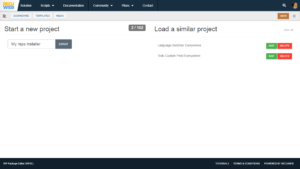
Enables qTranslate-X multilingual framework for plugin Yoast SEO. We appologize for the recent change of the plugin name from “Yoast SEO & qTranslate-X” due to WordPress request in the effort of cleaning up and enforcing plugin naming policies, especially with respect to trademark guideline #17: no plugin name should start with other plugin name.
At least version 3.4.5 of qTranslate-X is required.
This plugin is currently a work in progress, please review the Known Issues and report the features, which did not work for you.
Please, do not contact Yoast SEO plugin developers asking to fix issues of this plugin, since they have their hands full with their own problems and they do not have neither time nor capability to consider and to work on the problems of this integration plugin.
The biggest issue is that “Page Analysis” has not yet been fully integrated, and it is disabled unless Single Language Editor Mode is in use, which can be set on “Advanced” tab of “Languages” configuration page: /wp-admin/options-general.php?page=qtranslate-x#advanced. If you have time and resources, please feel free to submit pool request to the plugin repository at GitHub with the implementation of “Page Analysis” for other editor modes. However, it may not be possible without asking Yoast to put a few additional filters within “Yoast SEO” plugin code.
Known Issues
- Yoast SEO “Page Analysis” is not yet integrated and is mostly disabled to prevent confusions. It is only experimentally enabled in Single Language Editor Mode, which can be set on “Advanced” tab of “Languages” configuration page,
/wp-admin/options-general.php?page=qtranslate-x#advanced. If you have time and resources, please feel free to submit pool request to the plugin repository at GitHub with the implementation of “Page Analysis” for other editor modes. Unfortunately, it may not be possible without asking Yoast to put a few additional filters within “Yoast SEO” plugin code. - [plugin Yoast SEO issue] When XML Sitemaps are enabled on Yoast configuration page
/wp-admin/admin.php?page=wpseo_xmland Yoast plugin is deactivated, it clears rewrite rules needed for sitemap to function. On next activation of Yoast plugin, sitemaps no longer function until their functionality is deactivated and then activated again on Yoast configuration page “XML Sitemaps”. - [Resolved in plugin version 1.0.2 under qTranslate-X 3.4.4] Field ‘Meta description’ is not coming back correctly after saving. In some configurations it works though. The nature of conflict is not yet known. You would need to keep this field empty, if you are affected.
- [not really an issue] Sitemaps do not work quite right in Query URL Modification Mode. Query Mode is not supposed to be used for SEO.
Download & install the zip archive
The plugin package installer can be downloaded from the WP2E project tab called “code”.
1 – Select the version to download if this option is available otherwise the “latest” version of the main plugin will be used.
2 – After downloading the zip archive install the plugin package installer in you local environment and activate the script from the plugin list.
3 – Under the section “Plugins” of the admin dashboard you should see a new “Dependencies & Licenses” link. Follow the instructions from this panel to finalize the installation of the missing dependencies.
- Give a name to your project
- Download the Installer Package
- Install & activate the plugin locally
- Install the suggested dependencies
Tips: Use the WP2E panel to add/suggest new dependencies to the local installation. Press F5 in the list of dependencies if the changes are not displayed right away.



